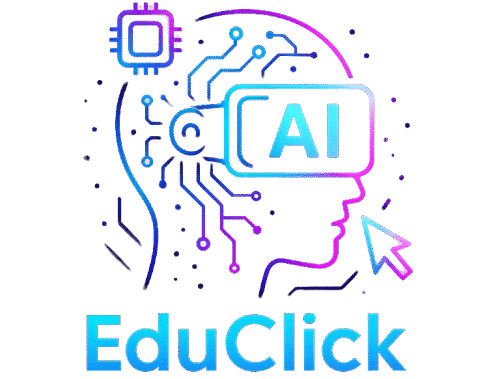Revolutionizing Learning: How EdTech Startups Are Disrupting Traditional Education Models
Imagine a world where education is not confined to four walls, a blackboard, and an instructor at the front of a classroom. Instead, visualize a dynamic learning environment tailored to your personal needs, accessible from anywhere on the planet, powered by cutting-edge technology. This is the promise of EdTech startups, which are taking the traditional education models and turning them on their heads, offering new strategies and solutions that are as diverse as they are effective.

Perhaps you remember those early school days with mixed feelings – the rigid structure, the uniform curriculum, and the one-size-fits-all teaching style. You might have found yourself daydreaming or wondering if there was a better way to learn, one that resonated with your unique style and pace. If you’ve felt that way, you’re not alone. Many learners across the globe have shared similar sentiments, fueling a demand for more adaptable and responsive education solutions.
As an individual with the opportunity to embrace this educational revolution, you can now access a myriad of tools and resources that were beyond imagination just a few years ago. Whether you’re a student seeking a personalized learning experience or an educator looking to enhance your teaching methods, the disruption caused by EdTech startups is poised to change the way you think about education forever. In this article, we’ll delve into how these startups are rewriting the rules of the game and what this means for you as a learner, an educator, or a stakeholder in the education sector.
The Rise of EdTech Startups: A New Era of Learning
Understanding EdTech and Its Impact
The term “EdTech” refers to the integration of technology into educational practices to enhance learning experiences and access. EdTech startups are at the forefront, leveraging technology to address the limitations of conventional educational systems. By doing so, they are making education more accessible, affordable, and effective.
For instance, platforms like Khan Academy and Coursera offer free or low-cost courses from world-renowned institutions, making quality education accessible to anyone with an internet connection. This democratization of learning is one of the most significant impacts of EdTech.
Remote Learning Strategies: Breaking Down Geographical Barriers
One of the most notable contributions of EdTech startups is their role in advancing remote learning strategies. These strategies allow students to access learning materials and engage with instructors from anywhere, eliminating geographical constraints.
- Virtual classrooms powered by tools like Zoom and Microsoft Teams.
- Online platforms offering interactive lessons in various subjects.
- Customized learning paths tailored to individual student needs.
Case Study: How Duolingo is Changing Language Learning
Duolingo, a popular language learning app, exemplifies how EdTech startups are transforming traditional education models. By gamifying the learning process, Duolingo makes language acquisition fun and engaging, allowing users to learn at their own pace.
The app’s success is evident in its widespread adoption, with millions of users worldwide benefiting from its innovative approach to language education.
Innovative Learning Platforms: Bridging the Gap
Personalized Learning Experiences
EdTech startups prioritize personalized learning experiences by using data analytics and artificial intelligence to tailor content to individual learners. This approach ensures that students engage with material that suits their learning styles, thereby enhancing retention and understanding.
An example of this is DreamBox, a platform that adapts math lessons to a student’s performance, offering challenges that meet their current level of understanding.
Collaborative Learning Environments
In traditional education models, collaboration often takes a back seat. However, EdTech startups have introduced collaborative learning environments where students can work together on projects, share insights, and learn from one another.
Platforms like Padlet and Trello facilitate group work, enabling learners to engage in meaningful discussions and problem-solving activities.
The Role of Gamification in Education
Gamification involves incorporating game-like elements into educational content to increase engagement and motivation. EdTech platforms such as Kahoot! and Quizlet have successfully implemented gamification techniques, making learning an interactive and enjoyable experience.
These platforms encourage friendly competition and instant feedback, which can significantly enhance the learning process.
🎥 Vídeo complementar sobre o tópico
Overcoming Challenges: The Roadblocks to Success
Addressing the Digital Divide
While EdTech startups offer promising solutions, they must also address the digital divide that limits access to technology for some students. Ensuring equitable access to devices and internet connectivity is crucial for universal adoption.
Efforts such as initiatives to provide low-cost devices and community internet access points are steps in the right direction.
Navigating Privacy and Security Concerns
With the increase in online learning, protecting student data has become a critical concern. EdTech startups must implement robust security measures to safeguard personal information and maintain user trust.
Compliance with regulations such as GDPR and COPPA is essential for startups operating in this space.
Ensuring Content Quality and Relevance
The rapid pace of technological advancement means that educational content can quickly become outdated. EdTech startups need to ensure that their content remains current and relevant to be effective.
Regular updates and collaborations with educators can help maintain high-quality content delivery.
The Future of Education: What Lies Ahead?
Blended Learning: The Best of Both Worlds
The future of education may lie in blended learning models that combine the flexibility of online education with the interpersonal benefits of in-person instruction. This approach allows students to experience the best of both worlds.
Examples include flipped classrooms and hybrid programs that offer both online and face-to-face components.
Artificial Intelligence: The New Frontier
Artificial intelligence (AI) is poised to revolutionize education by offering predictive analytics, personalized learning paths, and intelligent tutoring systems. AI can provide instant feedback and adapt to a student’s learning pace.
Platforms like Gradescope use AI to streamline grading and provide detailed analytics to both students and educators.
Sustainable Education Solutions
As the world becomes more conscious of sustainability, EdTech startups are exploring eco-friendly solutions in education. Digital textbooks, virtual conferences, and online resources reduce the carbon footprint associated with traditional education models.
This shift towards sustainability is both a challenge and an opportunity for innovation in the EdTech sector.
Real-World Examples: Success Stories of EdTech Startups
Khan Academy: Democratizing Education
Khan Academy’s mission to provide free, world-class education to anyone, anywhere, is a testament to the transformative power of EdTech. With a vast library of video lessons and exercises, Khan Academy has reached millions of learners globally.
The platform’s success highlights the potential of technology to make quality education accessible to all.
Coursera: Bridging the Gap Between Academia and Industry
Coursera partners with top universities and organizations to offer courses, specializations, and degrees online. This collaboration bridges the gap between academia and industry, providing learners with relevant skills for the modern workforce.
Coursera’s impact is evident in its vast array of courses, catering to diverse educational backgrounds and career goals.
Zoom: Transforming the Classroom Experience
During the COVID-19 pandemic, Zoom emerged as a vital tool for remote education, transforming how educators and students interact. Its ease of use and robust features have made it a staple in modern classrooms.
The widespread adoption of Zoom showcases the adaptability of EdTech solutions in response to unexpected challenges.

Frequently Asked Questions
What are the main benefits of EdTech startups?
EdTech startups offer numerous benefits, including increased accessibility to education, personalized learning experiences, and the integration of innovative technologies. These startups make education more flexible and engaging, allowing students to learn at their own pace and according to their individual needs. Additionally, they help bridge the gap between traditional education and modern industry demands.
How do EdTech startups address the challenges of traditional education models?
EdTech startups address traditional education challenges by introducing flexibility, adapting to individual learning styles, and overcoming geographical limitations through remote learning. They also integrate technology to enhance engagement and provide real-time feedback, making the learning process more interactive and effective.
What role does gamification play in EdTech solutions?
Gamification in EdTech solutions involves incorporating game-like elements into learning to increase motivation and engagement. This approach makes learning fun and interactive, encouraging students to participate actively. Platforms like Kahoot! use quizzes and leaderboards to create a competitive yet educational experience.
Can EdTech startups replace traditional classrooms?
While EdTech startups offer numerous advantages, they are not a complete replacement for traditional classrooms. Instead, they complement traditional methods by providing additional tools and resources. Blended learning approaches that combine both online and in-person instruction are likely to be more prevalent in the future.
How do EdTech startups ensure the security of user data?
EdTech startups implement robust security measures, such as encryption and secure user authentication, to protect user data. They also comply with data protection regulations like GDPR and COPPA to ensure privacy and security. Continuous monitoring and updates further help in safeguarding information.
What are some examples of successful EdTech startups?
Successful EdTech startups include Khan Academy, which offers free educational resources; Coursera, providing online courses and degrees; and Duolingo, a language learning app. These startups have significantly impacted education by making it more accessible and personalized.
How is AI used in EdTech?
AI in EdTech is used to analyze student data, provide personalized learning paths, and offer real-time feedback. It helps in creating intelligent tutoring systems that adapt to each learner’s pace and style. AI also assists in administrative tasks, freeing up educators to focus on teaching.
What challenges do EdTech startups face?
EdTech startups face challenges such as ensuring equitable access to technology, maintaining data security, and keeping their content relevant and high-quality. Addressing the digital divide and adapting to rapidly changing educational needs are also significant hurdles that these startups must overcome.
Conclusion: Embracing the Educational Revolution
The disruption of traditional education models by EdTech startups presents an opportunity for a profound transformation in how we perceive and approach learning. As these startups continue to innovate, they bring forth solutions that not only address current educational challenges but also anticipate future needs.
As a learner or educator, embracing these changes can unlock new possibilities for growth and development. By integrating technology into education, you can access a wealth of resources, collaborate with peers globally, and customize your learning journey. This shift towards a more flexible and inclusive educational model empowers you to pursue your passions and achieve your goals effectively.
Your engagement in this educational revolution is crucial. Whether it involves exploring new platforms, participating in online courses, or advocating for digital literacy, your actions can contribute to shaping the future of education. As we move forward, the collaboration between technology and education will undoubtedly redefine the learning landscape, making it more accessible, personalized, and impactful than ever before.
Key Takeaways
- EdTech startups are transforming traditional education by leveraging technology to create flexible, personalized, and accessible learning experiences.
- Remote learning strategies break down geographical barriers, allowing students to learn anytime, anywhere.
- Personalized learning and gamification enhance engagement and retention, making education more interactive and effective.
- Challenges such as the digital divide and data security need to be addressed for the successful integration of EdTech solutions.
- Blended learning models and AI are set to further transform education, offering sustainable and adaptive solutions for future generations.




